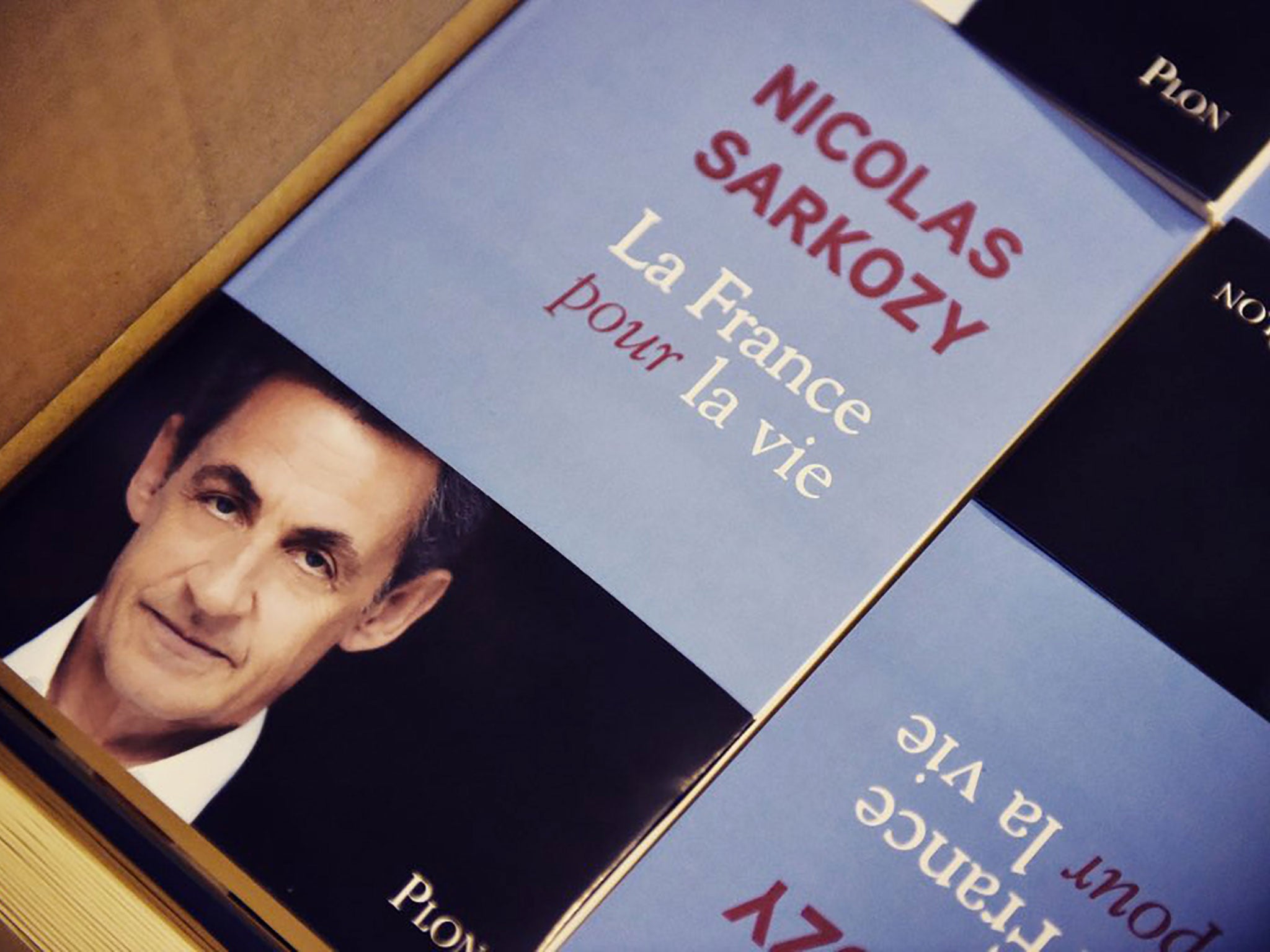Nicolas Sarkozy says sorry in new book and rebrands himself for second tilt at French presidency
His new book contains his first direct apologies for some of his rude and brash behaviour as president

Your support helps us to tell the story
From reproductive rights to climate change to Big Tech, The Independent is on the ground when the story is developing. Whether it's investigating the financials of Elon Musk's pro-Trump PAC or producing our latest documentary, 'The A Word', which shines a light on the American women fighting for reproductive rights, we know how important it is to parse out the facts from the messaging.
At such a critical moment in US history, we need reporters on the ground. Your donation allows us to keep sending journalists to speak to both sides of the story.
The Independent is trusted by Americans across the entire political spectrum. And unlike many other quality news outlets, we choose not to lock Americans out of our reporting and analysis with paywalls. We believe quality journalism should be available to everyone, paid for by those who can afford it.
Your support makes all the difference.A contrite Nicolas Sarkozy has leaped to the top of the French best-sellers’ list with a book published this week which seeks to revive his fading hopes of returning to the Elysée Palace next year.
The book – La France pour la vie [France for Life] – contains rare apologies for mistakes and boorish behaviour when he was President from 2007-12 and insists that he is now a more “experienced” and “serene” man.
Despite the surge of advance sales for his book, Mr Sarkozy’s chances of becoming the first man to reclaim the French presidency appear to be eroding rapidly.
Opinion polls suggest he has fallen far behind the former Prime Minister, Alain Juppé, in early running for the centre-right presidential primary election, which is held in November. In another poll last week, only 23 per cent of those questioned said they wanted Mr Sarkozy, 60, to be a candidate in the presidential election in April and May next year.
The former President also has serious legal problems. He faces a critical hearing in France’s highest appeal court as he attempts to avoid trial on accusations of “corruption” and “influence peddling”.
Two of Mr Sarkozy’s closest allies were formally accused of corruption and making false financial declarations last week. Officially, Mr Sarkozy has yet to say whether he will make another run for the Elysée. He said this weekend that his book is neither a “mea culpa” nor an official “declaration” of his candidature.
In practice, it is both. In an interview with Le Journal du Dimanche, he said that the French had “perhaps not yet turned the page” on the political career of Nicolas Sarkozy. “As time passes and I grow older, I have achieved what has long eluded me – serenity,” he writes in his book.
In the 260 pages, he seeks to re-brand “Sarko II” as a kinder and gentler man but also a more focused politician, determined to carry through the economic reforms that he failed to pursue in 2007-12.
Although Mr Sarkozy has spoken of regrets before, the book contains his first direct apologies for some of his rude and brash behaviour as president. When a member of the public refused to shake his hand at the Paris agricultural show in 2008, President Sarkozy said: “Get lost, you pathetic loser.”
“That was an act of stupidity, which I regret to this day,” he writes in the book, published this Monday. “I dragged down the dignity of the presidency.”
Mr Sarkozy also admits that he failed to pursue properly the market-opening and tax-reducing reforms that he had promised in 2007. In particular, he says, he regrets not having abolished, rather than tinkered with, France’s 35-hour working week. After announcing his retirement from politics when he lost the presidency to François Hollande in 2012, Mr Sarkozy returned to run successfully for the leadership of his centre-right party in 2014. He has since changed the name of the party to “Les Républicains”.
He boasted at the time that he was the only centre-right leader capable of checking the erosion of support to Marine Le Pen’s cosmetically cleaned-up Front National.
A series of electoral successes for the Far Right in the last 18 months have deflated Mr Sarkozy’s claims. He has also been damaged by formal allegations that his campaign in 2012 spent twice the legally permitted limit and covered up by secretly dumping the extra spending on the already over-stretched finances of his party. Mr Sarkozy has denied all knowledge of this.
He or his close associates have also been named in a dozen other criminal investigations. Potentially the most serious is the accusation by two investigating magistrates that Mr Sarkozy tried to bribe a senior judge in 2013 to obtain information and influence on investigations against him.
On Thursday, France’s highest appeal court will hear an application by Mr Sarkozy to have the accusations quashed on the grounds that they were based on information obtained by an illegal tap on his mobile telephone. A ruling is expected in March.
If Mr Sarkozy loses his appeal, he will almost certainly be sent for trial some time this autumn – just before the centre-right primary election in November.
Join our commenting forum
Join thought-provoking conversations, follow other Independent readers and see their replies
Comments